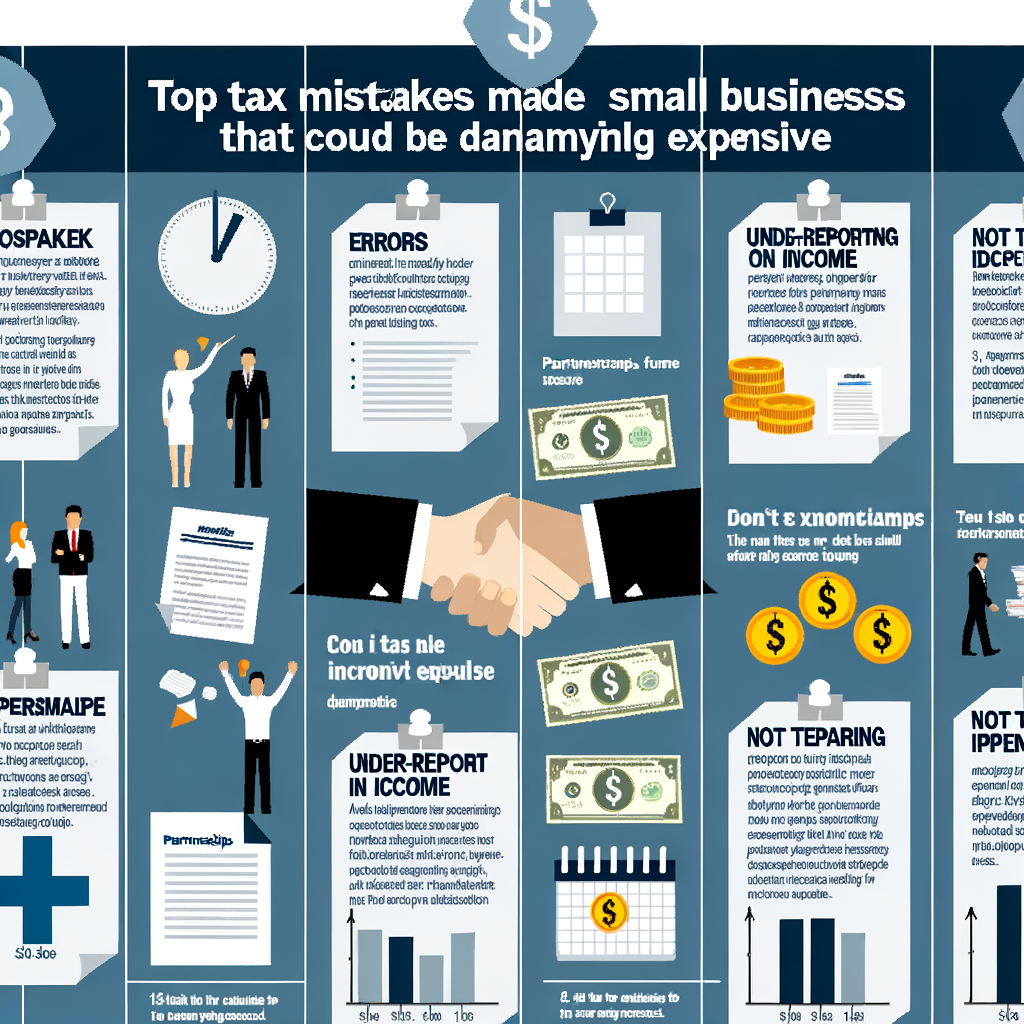Running a small business in Florida can be a thrilling adventure, but it comes with its own set of challenges. One of the most critical aspects of running a successful business is managing your taxes correctly. Making mistakes in this area can lead to penalties, audits, and even financial ruin. In this blog post, we’ll highlight the common tax errors that small business owners in Florida face and provide practical tips on how to avoid them.
1. Inaccurate Recordkeeping
One of the most common reasons small businesses run into tax troubles is poor recordkeeping. Imagine this scenario: you’re trying to deduct a business expense, but you can’t find the receipt because it’s buried under a pile of paperwork. This is exactly what happens when you don’t keep accurate financial records.
Tip: Use accounting software or hire a professional bookkeeper to ensure your records are meticulous and up-to-date. Keep all receipts, invoices, and bank statements organized in a digital or physical file. This will save you time and reduce the risk of errors during tax season.
2. Misclassifying Workers
Classifying workers as employees or independent contractors can be a complex task, but it’s crucial to get it right. For instance, if you misclassify an employee as an independent contractor, you might avoid paying employment taxes, but you could also face penalties and back taxes.
Real-World Example: Sarah owns a graphic design studio in Miami. She hires a designer who works from home and provides her own equipment. Sarah mistakenly classifies the designer as an independent contractor, thinking it will save her money on employment taxes. However, during an IRS audit, she discovers that the designer should have been classified as an employee, leading to a significant fine.
Tip: Understand all the criteria set by the IRS for determining worker classification. Seek professional advice if you’re unsure. Properly classifying your workers from the start can save you from future headaches and potential financial setbacks.
3. Overlooking Tax Deductions and Credits
Small businesses often miss out on valuable deductions and credits that can significantly reduce their tax liability. These deductions include business-related expenses like rent, utilities, supplies, and marketing costs.
Real-World Example: John owns a bakery in Tampa. He spends $10,000 on ovens and baking equipment each year, but he forgets to claim the full amount as a deduction. By overlooking this deduction, John misses out on thousands of dollars in savings.
Tip: Stay informed about available tax breaks and credits specific to your industry. Common deductions include business-related expenses like rent, utilities, supplies, and marketing costs. Explore credits such as the Research and Development (R&D) credit or the Small Business Health Care Tax Credit. Consult with a tax professional to maximize your tax savings.
4. Failure to Separate Personal and Business Expenses
Blurring the lines between personal and business expenses is a common mistake made by small business owners. Mixing personal and business finances not only creates confusion but can also raise red flags during tax audits.
Real-World Example: Maria owns a boutique in Fort Lauderdale. She uses her personal credit card for both personal and business expenses, making it difficult to separate them. During an audit, Maria struggles to prove that certain expenses are legitimate business costs.
Tip: Establish separate bank accounts and credit cards exclusively for business purposes. Keep meticulous records of all business-related expenses, ensuring they are legitimate and necessary for your operations. Maintaining clear separation will simplify tax preparation and demonstrate the professionalism of your business to the IRS.
5. Missing Deadlines and Filing Errors
Missing tax deadlines and making filing errors can have serious consequences. Late filings can result in penalties and interest charges, putting unnecessary strain on your business’s finances.
Real-World Example: David owns a landscaping company in Orlando. He forgets to file his quarterly estimated taxes, resulting in significant penalties and interest charges.
Tip: Mark important tax deadlines on your calendar and establish a system of reminders. Double-check all tax forms for accuracy, ensuring that you’ve entered the correct information. Consider utilizing tax software or seeking professional assistance to minimize the risk of errors and ensure timely and accurate filings.
By being aware of these common tax mistakes and taking proactive measures to avoid them, small businesses in Florida can alleviate tax-related stress and position themselves for financial success. Remember, accurate recordkeeping, proper worker classification, claiming all eligible deductions, separating personal and business expenses, and meeting tax deadlines are all crucial steps in managing your taxes correctly.
If you need assistance with any of your tax planning and preparation needs in or around St Augustine Florida, visit our free directory of vetted tax professionals here. They can help you develop smart strategies that will benefit you, your family, and your business. Stay ahead of the game by avoiding these common tax mistakes and ensuring a smooth financial journey for your Florida-based small business.


